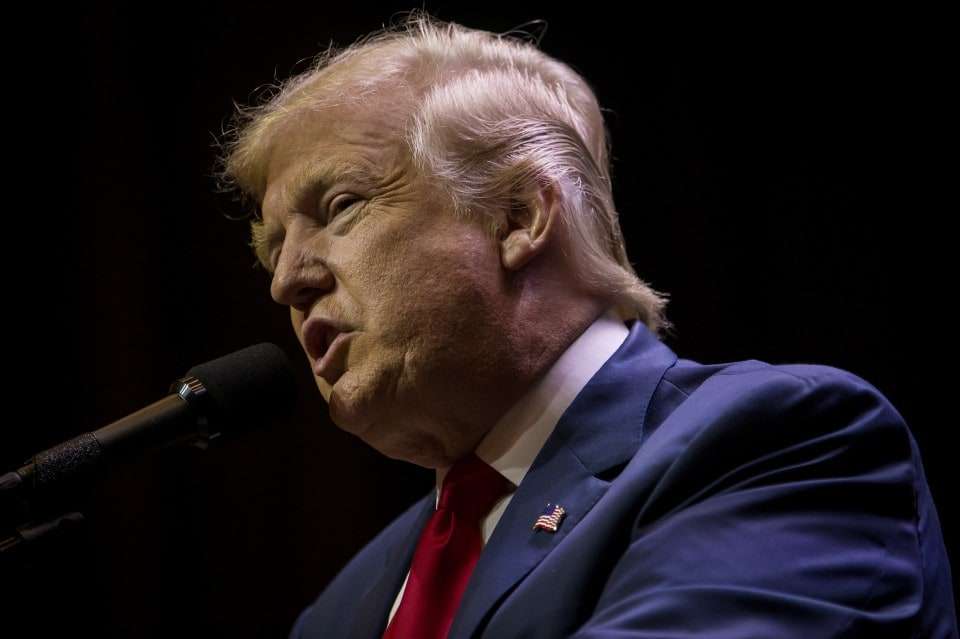The Volokh Conspiracy
Mostly law professors | Sometimes contrarian | Often libertarian | Always independent
The Emoluments Clause -- is Donald Trump violating its letter or spirit?

Six months ago, I doubt too many people knew much about the Emoluments Clause of the Constitution (also known as the "Foreign Emoluments Clause"). Now, however, thanks to controversies surrounding the Clinton Foundation and President-elect Donald Trump's business dealings, the clause is the subject of substantial discussion.
Like most readers of this blog, I suspect, I am anything but an expert on this clause. Fortunately, one of my colleagues - Erik Jensen - is such an expert. So I asked him to comment, and the following is what he had to offer:
The Foreign Emoluments Clause in Article I, section 9, provides that "no Person holding any Office of Profit or Trust under [the United States] shall, without the Consent of Congress, accept of [sic] any present, Emolument, Office, or Title, of any kind whatever, from any King, Prince, or foreign State."
I began paying attention to this Clause because of controversy about contributions to the Clinton Foundation made by foreign governments while Hillary Clinton was Secretary of State. If the concern underlying the Clause is the possibility of an "Office[r] of Profit or Trust" having divided loyalties - holding a U.S. office while getting goodies from another government - does the concern disappear if a "present" or "emolument" is paid by a foreign state to a foundation in which an officer has a significant say, at least indirectly, rather than to the officer personally? I didn't think so, but who knows? The founders were thinking about foundational issues, but they obviously weren't thinking about foundations.
If nothing else, however, the Clause emphasizes the founders' fears about economic benefits coming to American officials from foreign governments. It adds a constitutional dimension to some good, old-fashioned appearance-of-impropriety concerns.
The issues have, if anything, intensified with the election of Donald Trump, and the Foreign Emoluments Clause has become a hot topic, as evidenced by Professor Zephyr Teachout's op-ed [and Professor Seth Barrett Tillman's counterpoint] in yesterday's New York Times. Mr. Trump has business holdings around the world, and his enterprises inevitably deal with foreign governments and entities that are arms of foreign governments. Given that the presidency is clearly an "Office of Trust or Profit," will those business dealings be a problem if they continue, assuming that Congress doesn't give its okay? (Congress has given consent in some cases, such as for presents of trivial value, when influence peddling doesn't seem to be involved.)
The answer is again an unequivocal Who knows? Some of the key questions are as follows:
1. Whether a corporation created by a foreign state ought to be treated as the foreign state for these purposes. The founders wouldn't have been contemplating such an arrangement, but the answer, if the Clause is going to have any effect, ought to be yes.
2. Is an apparently arms-length business deal, with value going in both directions, between an entity connected to the president and an enterprise controlled by a foreign state potentially covered by the Clause? In such a case no "present" seems to be involved, unless the terms aren't in fact arms-length. But, even so, the term "emoluments" picks up some arms-length arrangements, at a minimum including compensation for services provided to the foreign government. (An American official's being paid for actual services is clearly more problematic than getting a "present" from the government.)
3. If the president's business enterprise strikes a deal with a corporation formed by a foreign government not directly involving provision of services, is it clear that no "emolument" is involved? It's not clear to me.
4. Does it matter that the Trump kids, rather than President Trump himself, will be running the Trump enterprises? In that case, maybe the emolument, if any, is going to the kids rather than to Dad. But surely the purpose underlying the Foreign Emoluments Clause is implicated. What are called "blind trusts" are often like the "blind" beggars in The Hunchback of Notre Dame. With the Trump family in charge, I don't see how anyone can even pretend blindness.
Whether or not one concludes that Trump's business dealings violate the letter or the spirit of the Emoluments Clause, the underlying controversy is almost certainly non-justiciable. It is difficult to conceive of a scenario in which someone would have standing to challenge Trump's arrangements, and even harder to think what sort of remedy could be ordered by a court. In other words, if there are concerns about how President Trump handles his various investments, the only remedies will be political.


Show Comments (0)